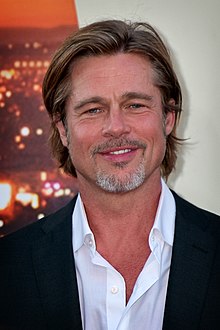Portal:Television
The Television Portal

Television (TV) is a telecommunication medium for transmitting moving images and sound. Additionally, the term can refer to a physical television set, rather than the medium of transmission. Television is a mass medium for advertising, entertainment, news, and sports. The medium is capable of more than "radio broadcasting", which refers to an audio signal sent to radio receivers.
Television became available in crude experimental forms in the 1920s, but only after several years of further development was the new technology marketed to consumers. After World War II, an improved form of black-and-white television broadcasting became popular in the United Kingdom and the United States, and television sets became commonplace in homes, businesses, and institutions. During the 1950s, television was the primary medium for influencing public opinion. In the mid-1960s, color broadcasting was introduced in the U.S. and most other developed countries.
In 2013, 79% of the world's households owned a television set. The replacement of earlier cathode-ray tube (CRT) screen displays with compact, energy-efficient, flat-panel alternative technologies such as LCDs (both fluorescent-backlit and LED), OLED displays, and plasma displays was a hardware revolution that began with computer monitors in the late 1990s. Most television sets sold in the 2000s were flat-panel, mainly LEDs. Major manufacturers announced the discontinuation of CRT, Digital Light Processing (DLP), plasma, and even fluorescent-backlit LCDs by the mid-2010s. LEDs are being gradually replaced by OLEDs. Also, major manufacturers have started increasingly producing smart TVs in the mid-2010s. Smart TVs with integrated Internet and Web 2.0 functions became the dominant form of television by the late 2010s. (Full article...)
Selected article -

KPHO-TV (channel 5) is a television station in Phoenix, Arizona, United States, affiliated with CBS. It is owned by Gray Television alongside independent stations KTVK (channel 3) and KPHE-LD (channel 44), a group known together as "Arizona's Family". The three stations share studios on North Seventh Avenue in Uptown Phoenix; KPHO-TV's transmitter is located on South Mountain on the city's south side.
KPHO-TV signed on in 1949 as Arizona's first television station and the only one approved prior to a nearly four-year freeze on new TV stations. It initially aired programming from all of the national networks, though it gradually lost them from 1953 onward as new stations signed on in the Phoenix area once the freeze ended. After losing CBS to KOOL-TV (channel 10) in 1955, channel 5 operated as an independent station for nearly 40 years, during which time it sometimes measured as the most-watched independent within its market in the United States; one of its productions, The Wallace and Ladmo Show, was among the longest-running local children's programs in the country. However, in the 1980s and early 1990s, it faced stiff competition in the guise of new independent outlets KNXV-TV and KUTP and saw declining ratings.
Selected image -

Fuji Television Network, Inc. Kabushiki Gaisha Fuji Terebijon is a Japanese television network based in Odaiba, Minato-ku, Tokyo, Japan. It is known as Fuji TV Fuji Terebi or CX. It is the flagship TV station of Fuji News Network (FNN) and Fuji Network System or FNS. It also has a relationship with Nippon Broadcasting System, Inc.
Did you know (auto-generated) -

- ... that John Wesley Shipp, who played the Flash in the 1990 television series, was cast as his father in the pilot episode of 2014's The Flash?
- ... that a television in the film Day of Reckoning includes scenes from Big Ass Spider!?
- ... that when acting in HBO television series Big Little Lies, Darby Camp received suggestions from Reese Witherspoon, who plays her onscreen mother?
- ... that for the first time this century, this year's British Athletics Championships were not broadcast on live television?
- ... that Angelito de Canal 13, the mascot of the Chilean television network Canal 13, was inspired by its creator's son?
- ... that people were scammed on New Zealand television by the host of You've Been Scammed?
Selected quote -
More did you know
- ...that the Simpsons short Good Night aired April 19, 1987 on The Tracey Ullman Show and was the first ever appearance of the Simpson family on television?
- ...that The O.C.'s music supervisor Alexandra Patsavas worked in the music department of over fifty Roger Corman B-movies before her television debut?
- ...that model Albert Reed, selected to appear in September 2007 on the United States television show Dancing with the Stars, admits that he cannot dance?
- ...that the final episode of the 1986 television series Outlaws recycled footage from The Oregon Trail, because actors Rod Taylor and Charles Napier appeared in both programs?
- ... that The Owl Service, a 1969 TV adaptation of the novel, was the first fully-scripted colour production by Granada Television?
Selected biography -
William Bradley Pitt (born December 18, 1963) is an American actor and film producer. He is the recipient of various accolades, including two Academy Awards, two British Academy Film Awards, two Golden Globe Awards, and a Primetime Emmy Award. One of the most influential celebrities, Pitt appeared on Forbes' annual Celebrity 100 list from 2006 to 2008, and the Time 100 list in 2007.
Pitt first gained recognition as a cowboy hitchhiker in the Ridley Scott road film Thelma & Louise (1991). His first leading roles in big-budget productions came with the drama films A River Runs Through It (1992) and Legends of the Fall (1994). He also starred in the horror film Interview with the Vampire (1994), alongside Tom Cruise. He gave critically acclaimed performances in David Fincher's crime thriller Seven (1995) and the science fiction film 12 Monkeys (1995). The latter earned him a Golden Globe Award for Best Supporting Actor and his first Academy Award nomination. (Full article...)General images
News
- December 28: US professional wrestler Jon Huber dies aged 41
- September 2: Tributes paid to recently deceased US actor Chadwick Boseman
- May 24: Japanese professional wrestler and Netflix star Hana Kimura dies aged 22
- January 16: BBC newsreader Alagiah to undergo treatment for bowel cancer
- Upcoming events
Featured content
Main topics
History of television: Early television stations • Geographical usage of television • Golden Age of Television • List of experimental television stations • List of years in television • Mechanical television • Social aspects of television • Television systems before 1940 • Timeline of the introduction of television in countries • Timeline of the introduction of color television in countries
Inventors and pioneers: John Logie Baird • Alan Blumlein • Walter Bruch • Alan Archibald Campbell-Swinton • Allen B. DuMont • Philo Taylor Farnsworth • Charles Francis Jenkins • Boris Grabovsky • Paul Gottlieb Nipkow • Constantin Perskyi • Boris Rosing • David Sarnoff • Kálmán Tihanyi • Vladimir Zworykin
Technology: Comparison of display technology • Digital television • Liquid crystal display television • Large-screen television technology • Technology of television
Terms: Broadcast television systems • Composite monitor • HDTV • Liquid crystal display television • PAL • Picture-in-picture • Pay-per-view • Plasma display • NICAM • NTSC • SECAM
Categories
WikiProjects

|
You are invited to participate in WikiProject Television, a WikiProject dedicated to developing and improving articles about Television. |
- Main projects
- Sub-projects
Television Stations • American animation • American television • Australian television • British TV • BBC • Canadian TV shows • Television Game Shows • ITC Entertainment Productions • Digimon • Buffyverse • Doctor Who • Degrassi • EastEnders • Episode coverage • Firefly • Futurama • Grey's Anatomy • Indian television • Lost • Nickelodeon • The O.C. • Professional Wrestling • Reality TV • The Simpsons • Seinfeld • South Park • Stargate • Star Trek • Star Wars • Soap operas • Avatar: The Last Airbender • House
- Related projects
Animation • Anime and manga • Comedy • Comics • Fictional characters • Film • Media franchises
What are WikiProjects?
Things you can do

- Place the {{WikiProject Television}} project banner on the talk pages of all articles within the scope of the project.
- Write: Possible Possum
- Cleanup: color television, Alien Nation: Body and Soul, The Sopranos, Alien Nation: Dark Horizon, Alien Nation: The Enemy Within, Alien Nation: Millennium, Aang
- Expand: Timeline of the introduction of color television in countries
- Stubs: Flow (television), Just for Kicks (TV series), Play of the Month, Nova (Dutch TV series), More stubs...
Subportals
Related portals
Associated Wikimedia
The following Wikimedia Foundation sister projects provide more on this subject:
-
Commons
Free media repository -
Wikibooks
Free textbooks and manuals -
Wikidata
Free knowledge base -
Wikinews
Free-content news -
Wikiquote
Collection of quotations -
Wikisource
Free-content library -
Wikiversity
Free learning tools -
Wiktionary
Dictionary and thesaurus
































































